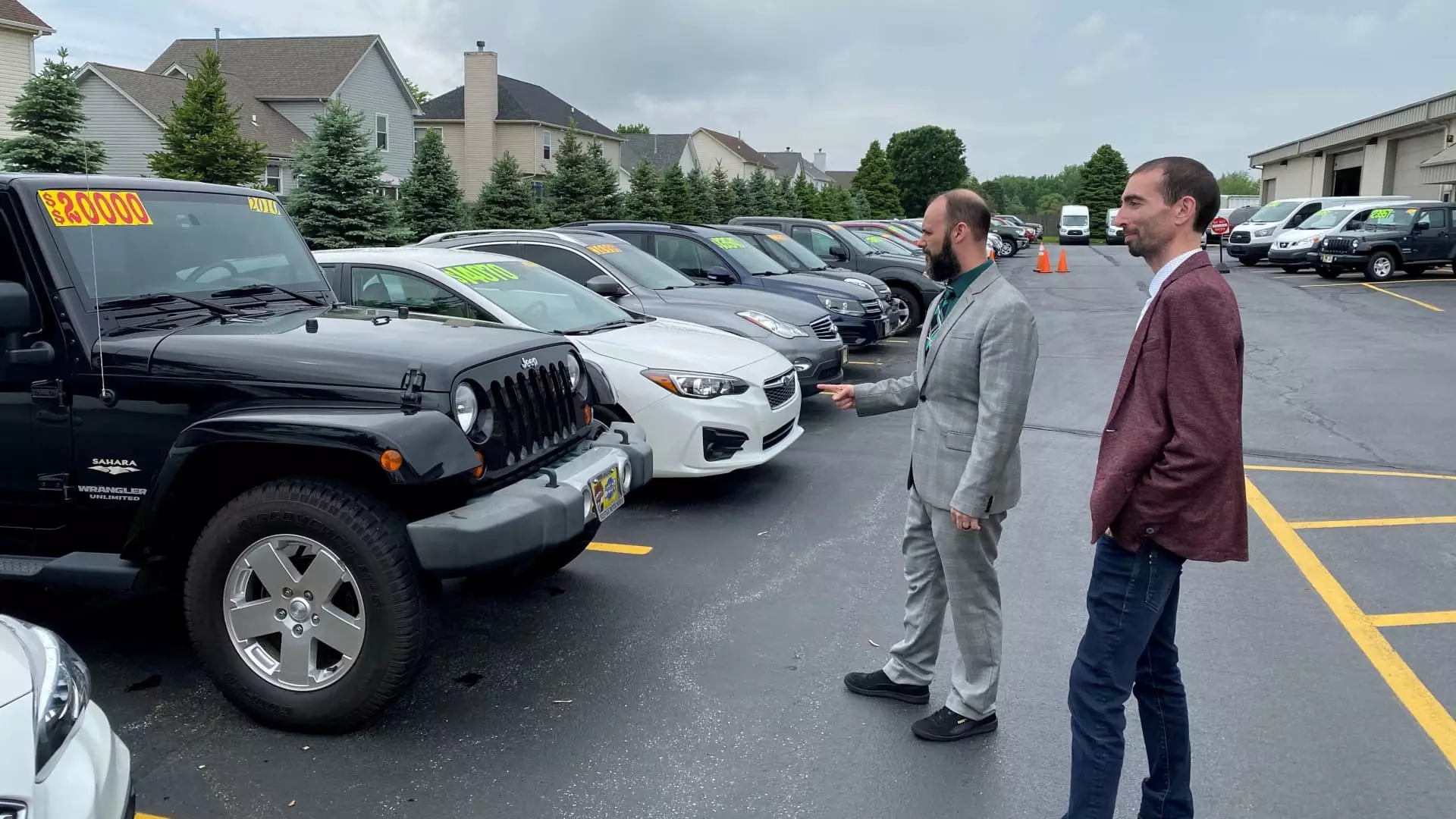U.S. Auto Dealers: Navigating a Complex Landscape as 2025 Approaches

As the U.S. automotive industry approaches 2025, there seems to be an emerging air of optimism among auto dealers, significantly shaped by the political landscape. The recent presidential election has acted as a catalyst for many dealership owners who are now showing increased confidence in the market. The anticipated policies from President-elect Donald Trump are seen as favorable to their business interests; dealers are keenly aware that governmental decisions can heavily influence market conditions. Recent research from Cox Automotive has revealed that this shifted perspective is accompanied by varying levels of unease regarding electric vehicle (EV) sales, a sector that is meant to be the future of automotive retail but currently poses challenges.
Despite the overall positive sentiment regarding traditional vehicle sales, the outlook for electric vehicles remains tenuous. According to Cox’s Q4 Dealer Sentiment Index, a significant proportion of respondents expressed a belief that EV sales will decline in the upcoming quarter. This aligns with broader concerns about federal policies anticipated under the new administration. Dealers are wary of proposed cuts to incentives that have previously buoyed EV sales, such as the valuable tax credits many consumers rely on when making purchasing decisions. These shifts in governmental stance not only threaten the future of EV sales but also leave dealerships questioning the sustainability of their investments in adapting to this growing segment.
The current effectiveness of tax credits comes sharply into focus when discussing the future of the electric vehicle market. Cox’s Chief Economist Jonathan Smoke has acknowledged that these incentives have proven beneficial across both new and used vehicle sectors. However, their potential discontinuation due to the administration’s stance on taxpayer-funded incentives could have significant ramifications for dealers. As more showrooms push to promote EVs, the worry is that without monetary incentives to encourage buyers, sales performance could tank.
This apprehension is evident in the responses collected by Cox—dealers are expressing tension surrounding their ability to pivot quickly to EV sales if the incentives that made such transitions feasible evaporate. The ideological shifts associated with leadership changes typically signal a corresponding fluctuation within industry dynamics. The continuing evolution of vehicle technology necessitates that dealerships remain agile, yet financial backing in the form of subsidies plays a vital role in reducing initial consumer hesitations.
While 2024 information shows dealer optimism reflected in a significant rise in the market outlook index—jumping from 42 to 54—the cautionary notes regarding EVs reveal a complex and bifurcated market landscape. Traditional vehicles are holding a robust position, buoyed by high pricing across new and used categories, as well as decreased political uncertainty in the wake of the election. However, dealers still believe the automotive retail market remains painfully weak, unable to shake off the impact of pandemic-related disruptions.
With automotive stocks performing well—AutoNation, Lithia Motors, and Group 1 Automotive seeing substantial gains—it seems that established players are adapting effectively to these changing tides, while those dealing solely in electric vehicles are left feeling the strain. This divergence invites speculation about the long-term viability of EV adoption. If consumer interest wanes due to financial barriers presented by policy changes, dealers may find themselves in a precarious position.
Indications from Cox Automotive suggest that the majority of dealers are embracing a renewed sense of purpose as they navigate their businesses into 2025. With political uncertainty settling down post-election, stakeholders are holding onto the hope that supportive measures will reemerge. Many are banking on potential tax rebates and lower interest rates, both of which would foster consumer purchasing decisions.
As we head into the new year, understanding the dual nature of the automotive market is critical. Traditional vehicle sales are bolstered by optimism, yet the weight of challenges surrounding EVs looms large. The actions that the incoming administration opts to pursue regarding incentives and regulations will markedly influence dealer sentiment and consumer behavior. For the automotive retail sector to thrive, a more cohesive approach that harmonizes traditional and electric vehicle sales, while considering the interplay of economic factors, is essential moving forward.





